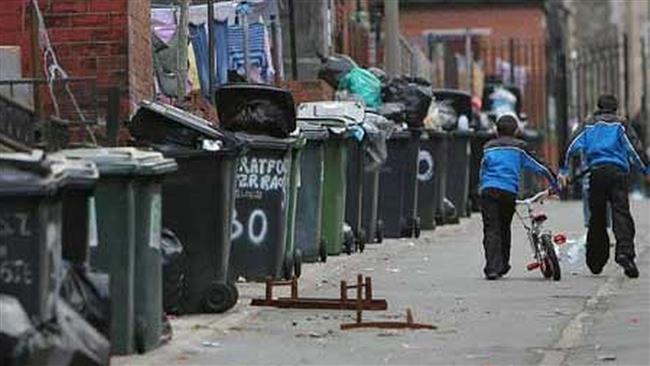3.6mn people in persistent poverty in UK


The UK has 3.9 million residents who are living in “persistent poverty,” a new study shows, underscoring the country’s precarious nature of work.
The latest data was released Monday by the Office for National Statistics (ONS) which also said one in three people in the UK has experienced poverty in recent years.
The report shows that there is a preponderance of low-paying and low-skilled jobs, which means many families are suffering severe hardship.
The ONS defines persistent poverty in reference to those making a relative low income in the current year and have been doing so in at least two out of the three preceding years.
The overall poverty rate increased from 15.9 percent in 2013 to 16.8 percent in 2014, the report added.
“The ONS figures lay bare the true scale of the challenge if an ‘all-out assault on poverty’ is to be successful,” said Julia Unwin, the chief executive of the Joseph Rowntree Foundation, a British social policy research and development charity.
“The government has been taking steps to secure a more prosperous society with lower levels of poverty. But these alone are not enough to provide a route out of hardship and fulfill [British Prime Minister] David Cameron’s pledge to truly transform the life chances of the country’s worst off people and places,” Unwin said.
Cameron said “an all-out assault on poverty” would be the focus of his second term tenure, but he has been under criticism for making changes to benefits that risk increasing working poverty.
The new report shows that 7.8% of the UK population entered poverty for the first time between 2010 and 2013.
“In the UK, the chances of getting into poverty are relatively high, but the chances of getting out of poverty are also high,” the ONS said
According to the ONS, the UK overall poverty rate is quite high compared to the rest of the European Union. Britain falls just under the EU average poverty rate with 16.8 percent of the population at risk.
The report noted that the UK’s overall poverty rate stood at 16.8% in 2014, the 12th highest in the EU.







